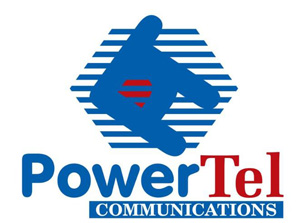 Last week, the state owned internet access provider, PowerTel Communications, officially launched its Internet bandwidth provision agreement with Botswana Telecommunications (BTC). The agreement was signed in March this year and is for the provision of 155mbps of Internet bandwidth to PowerTel.
Last week, the state owned internet access provider, PowerTel Communications, officially launched its Internet bandwidth provision agreement with Botswana Telecommunications (BTC). The agreement was signed in March this year and is for the provision of 155mbps of Internet bandwidth to PowerTel.
A number of high profile government officials attended the launch. In a speech read at the launch, Zimbabwe Minister of Energy and Power Development, Engineer Mudzuri explained that “because of limited capacity of satellite bandwidth, the cost of bandwidth was high in Zimbabwe. For bandwidth delivered by optic fibre there are economies of scale resulting in lower cost of bandwidth into the country, ultimately translating to lower internet usage charges.”
A PowerTel official speaking at a computer society event about three weeks ago warned that customers should not expect a sudden slashing of broadband prices. He explained that instead, prices will reduce gradually as more players (Africom and Econet) enter the market and Zimbabwe’s overall International Internet traffic capacity increases.
Most attendees at the computer society event complained and argued spiritedly that they wanted to see changes now. They cited PowerTel’s 3G mobile services in Harare as showing no signs of speed improvement or reduced prices despite the increased and cheaper international capacity PowerTel is getting.
To be fair this has been the experience world over when connections to higher capacity gateways is made. The reduced prices just take time to trickle down the to the customers at the bottom of the hierarchy. Part of the reason for a gradual (as opposed to sudden) lowering of costs is the long contracts local players enter into to tap into these high speed pipes. Other resource intensive costs are also incurred to reach the point of presence of the international undersea cable provider.
Most African countries that have connected to the undersea cables gracing the African shores this past year have not realized low connectivity costs until after several months. In neighboring South Africa for example, it is only this year, after connecting to the Seacom cable a year ago, that price cuts are being announced. Uncapped ADSL packages are being offered by ISPs to outbid each other for the customers.
With 1,000km of optic fibre stretching from Chitungwiza to the Plumtree border (with Botswana), PowerTel currently has the longest terrestrial fibre backbone in the country. This top spot might however be taken over by Econet in the next several months. Econet’s current project boasts about 4,500km of fibre from Zimbabwe’s border with Zambia, through Harare and Bulawayo, to the border with South Africa in Beitbridge.
PowerTel was also first on the scene with 3G mobile data services using the CDMA technology back in 2007. The service is however limited to Harare as only 6 base stations were installed. Econet launched its version of 3G just last year in August but it too was not deployed fully. Limited capacity and oversubscription resulted in the suspension of new registrations only a month after launch and registrations haven’t been resumed since.

7 comments
Broadband, Yippeee!! It’s about time
This link is still unstable and a lot of work needs to be done on the BGP
i think Powertel is being folly nekuti its the only ISP ine a solid cable underground.Let Econet and Africom & maybe,js maybe Telone,finish their projects& we will see wonders from them,manyemwe chete aya…………